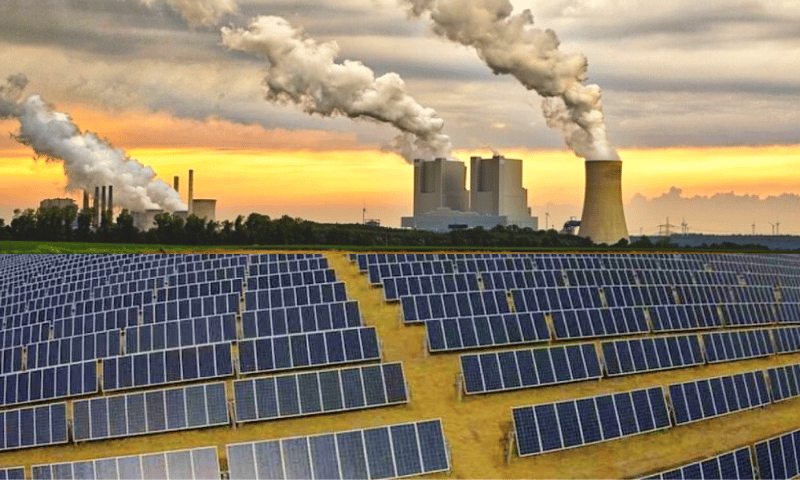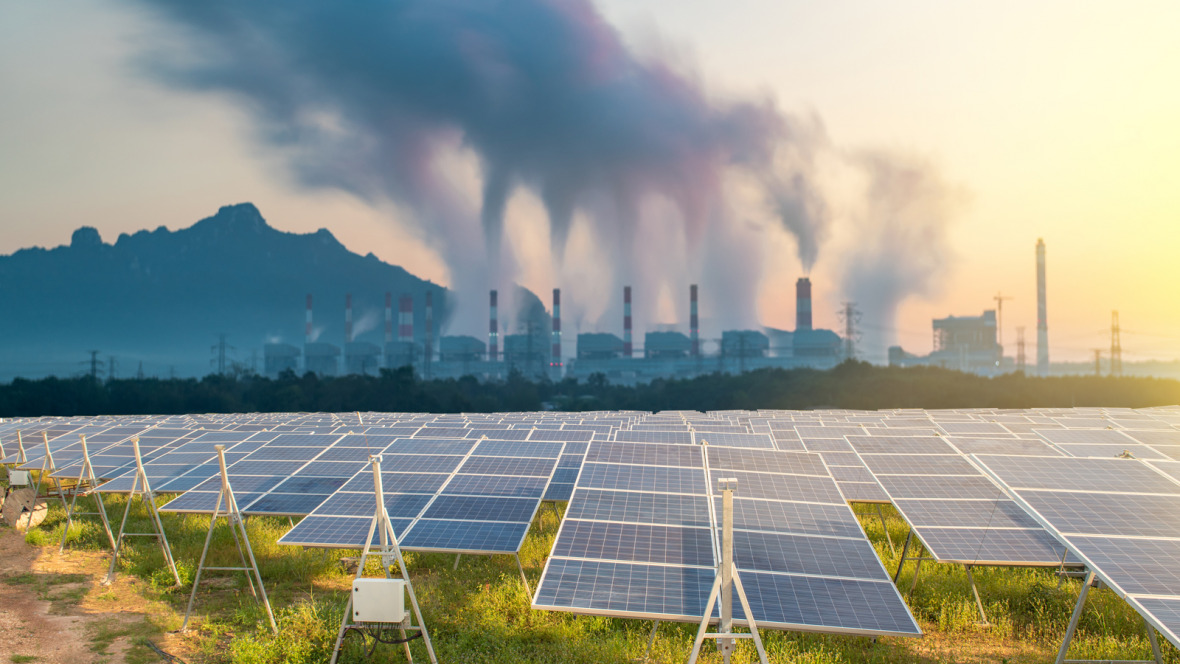
Introduction
Solar energy is a rapidly growing renewable energy source with significant implications for geopolitics and global energy markets. As countries aim to decrease their reliance on fossil fuels and transition to cleaner and more sustainable energy sources, solar energy is playing a pivotal role in reshaping the global energy landscape. This article explores the historical background, key concepts, case studies, current trends, challenges, future outlook, and the significance of solar energy’s impact on geopolitics and global energy markets.
Historical Background
Solar energy has been used by ancient civilizations for various purposes such as heating, cooking, and agriculture. However, it is in recent decades that solar energy technology has seen significant advancements. The advancement of solar energy technology has been driven by the need to find alternative sources of energy and reduce greenhouse gas emissions. This has led to the development of more efficient solar panels, improved storage systems, and innovative applications of solar energy.
Solar Energy: Definition and Types
Solar energy refers to the energy derived from the sun’s radiation, harnessed using technologies such as photovoltaic (PV) systems and concentrated solar power (CSP) plants. PV systems convert sunlight directly into electricity, while CSP plants use mirrors or lenses to concentrate sunlight and generate thermal energy, which is then converted into electricity. Both types of solar energy have unique advantages and are being increasingly adopted worldwide.

Geopolitics: Definition and its Relation to Energy
Geopolitics refers to the study of how political and economic factors influence the relations between nations and the distribution of power in the international system. Energy plays a crucial role in geopolitics, as countries compete for access to energy resources and seek to secure their energy supplies. Solar energy’s impact on geopolitics is significant, as it reduces countries’ dependence on fossil fuel imports and mitigates geopolitical tensions and conflicts arising from competition over energy resources.
Global Energy Markets: Definition and Significance in the Context of Solar Energy
Global energy markets encompass the buying and selling of energy resources, including oil, natural gas, coal, and renewable energy sources. Solar energy’s significance in global energy markets is rapidly increasing, as countries shift towards cleaner and more sustainable energy sources. The adoption of solar energy has the potential to disrupt traditional energy market structures, decentralize and democratize energy production, and create market opportunities for solar energy technology providers.
Main Discussion Points
Solar energy’s impact on energy independence and national security is a crucial consideration. By reducing dependence on fossil fuel imports, countries can achieve greater energy independence and enhance their national security. Additionally, solar energy mitigates geopolitical tensions and conflicts arising from competition over energy resources, as countries become less reliant on limited and politically unstable regions for their energy needs.
The influence of solar energy on energy market dynamics is evident in its potential to disrupt traditional energy market structures. As solar energy becomes more affordable and accessible, it has the potential to challenge the dominance of fossil fuels and create a more diversified energy mix. Furthermore, solar energy enables the decentralization and democratization of energy production, allowing individuals and communities to generate their own electricity and participate in the energy market.
The economic implications of solar energy adoption are significant, as it creates job opportunities and stimulates economic growth. The solar energy industry has the potential to generate a substantial number of jobs in manufacturing, installation, and maintenance. Moreover, the market opportunities for solar energy technology providers are vast, with increasing demand for solar panels, storage systems, and other related technologies.

Case Studies or Examples
One example of solar energy adoption impacting European energy markets is Germany’s Energiewende. Through ambitious renewable energy policies and investments, Germany has significantly reduced its reliance on fossil fuels and increased its share of renewable energy in the electricity mix. This has transformed Germany’s energy landscape and influenced energy market dynamics in Europe.
China’s dominance in solar panel production has far-reaching geopolitical consequences. As the largest producer of solar panels, China has gained influence over global solar energy markets. This has geopolitical implications as countries become increasingly reliant on China for their solar energy needs, potentially creating dependencies and vulnerabilities in the energy sector.
The impact of solar energy adoption on oil-rich countries in the Middle East is worth exploring. As solar energy becomes more affordable and competitive, countries heavily dependent on oil revenue face the challenge of diversifying their economies. Solar energy adoption can help these countries transition towards a more sustainable future and reduce their dependence on oil exports.
Current Trends or Developments
There is a significant increase in global investment in solar energy, driven by declining costs of solar panels and supportive government policies. This trend is expected to continue as countries strive to achieve their climate change and sustainable development goals. Technological advancements, such as the development of more efficient solar panels and storage systems, are also contributing to the growth of solar energy adoption worldwide.
The emergence of solar energy alliances and partnerships between countries is another noteworthy trend. Countries are collaborating to share knowledge, resources, and expertise in solar energy, aiming to accelerate the adoption of solar energy globally. These alliances and partnerships are crucial in creating an enabling environment for the widespread adoption of solar energy and addressing common challenges.

Challenges or Controversies
The integration of intermittent solar power into existing energy grids is a major challenge. Solar energy production is dependent on sunlight, which is not constant throughout the day or across different seasons. This intermittency poses challenges in maintaining grid stability and reliability. However, advancements in energy storage technologies, such as batteries, are helping address this challenge and ensure a smooth integration of solar power into existing grids.
Potential geopolitical conflicts over solar energy resources may arise as countries compete for access to sunlight-rich regions and suitable land for solar energy installations. This competition could lead to tensions and conflicts similar to those seen in the fossil fuel sector. International cooperation and the establishment of clear rules and regulations can help mitigate such conflicts and ensure a fair and sustainable distribution of solar energy resources.
The displacement of traditional energy industry workers and communities is a valid concern in the transition to solar energy. As the solar energy industry grows, job losses in the fossil fuel sector are inevitable. It is crucial to ensure a just transition for workers and communities affected by this shift by providing retraining opportunities, social safety nets, and support for the development of new industries in affected regions.
Future Outlook
Solar energy adoption in developing countries holds significant potential. As the costs of solar panels continue to decline, solar energy can provide a cost-effective and sustainable solution to meet the growing energy demand in these countries. Solar energy can enhance energy access, reduce reliance on fossil fuels, and promote economic development in developing nations.
The role of solar energy in achieving global climate change goals is critical. As countries strive to reduce greenhouse gas emissions and mitigate the impacts of climate change, solar energy offers a clean and renewable alternative to fossil fuels. By transitioning to solar energy, countries can contribute to the global effort to limit global warming and achieve a sustainable future.
The impact of emerging technologies on the future of solar energy is promising. Advancements in solar cell technology, energy storage, and grid integration are expected to further enhance the efficiency and effectiveness of solar energy systems. These technological developments will contribute to the widespread adoption of solar energy and shape its future trajectory.
Conclusion
Solar energy’s impact on geopolitics and global energy markets is undeniable. By reducing dependence on fossil fuels, solar energy enhances energy independence and national security. It disrupts traditional energy market structures, stimulates economic growth, and creates market opportunities. However, challenges such as grid integration, geopolitical conflicts, and job displacements need to be addressed. With increasing global investment, technological advancements, and international collaboration, solar energy has the potential to play a transformative role in shaping the future of energy.




